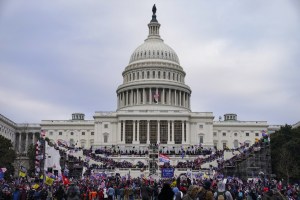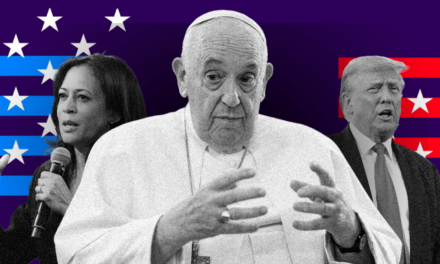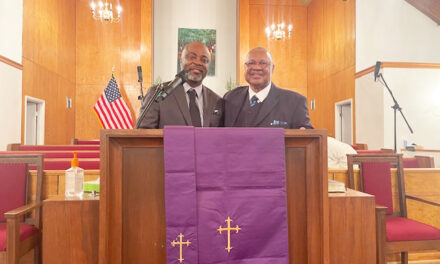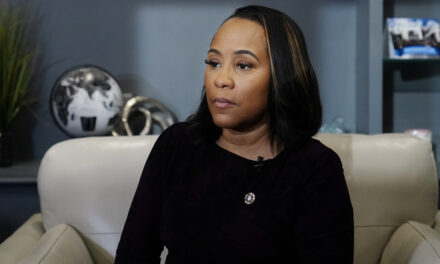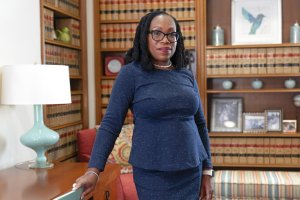
By J. K. Schmid
Special to the AFRO
The one-year anniversary of the Jan. 6 attack on the U.S. Capitol is here.
The occasion will be marked by speeches from the president, vice-president, members of Congress and the U.S. Attorney General.
Lawmakers will convene in the Capitol’s Cannon Caucus room to share their stories of the attack before holding a prayer vigil on the Capitol steps that evening. Candlelight vigils are scheduled to be held on the National Mall and near the Capitol that same evening.
U.S. Attorney General and former Supreme Court nominee Merrick Garland announced he will report, in a speech to the American people, the Department of Justice’s (DOJ) progress in investigating and prosecuting crimes surrounding the event.
DOJ counts 725 arrested in what it terms “The Capitol breach.” 145 of those charged have pleaded guilty to misdemeanors, 20 have pleaded guilty to felonies.
What happened the day of Jan. 6, 2021?
Newsweek reported that the FBI and Secret Service counted 120,000 Trump supporters on the day of the attack. Acting Capitol Police chief Yogananda D. Pittman told Congress that 10,000 rioters were on the Capitol grounds at the time of attack, and 800 ultimately forced their way into the Capitol building.
The Secret Service, prior to the attack, estimated 20,000 supporters of former President Donald Trump would participate in “First Amendment activities” at the White House.
Objectives of the attackers range from looting, protest and the disruption of the electoral college vote count being ratified by Congress.
Four dead in the attack
Over the course of the attack, and the tumult leading up to it, three men and one woman died, all identified as supporters of the former resident.
One rioter, Ashli Elizabeth Babbitt, a 35-year-old Air Force veteran was shot and killed by Capitol Police officer Lt. Michael Leroy Byrd after forcing her way through a barricade.
The DC Medical Examiner’s Office reported that Roseanne Boyland, 34, died of “acute amphetamine intoxication,” in an overdose.
Benjamin Phillips, 50, suffered a stroke and died and Kevin Greeson, 55, suffered a heart attack and died, both during crowd surges in the attack.
Deaths related to the attack did not stop on Jan. 6, either.
Four responding officers have committed suicide since; Capitol Police Officer Howard Charles Liebengood and DC Metropolitan Police Officer Jeffrey Smith both died in January. Metropolitan Police Officers Kyle Hendrik DeFreytag and Gunther Paul Hashida both died in July.
Police report 138 of their officers injured in the attack across Capitol Police and Metropolitan Police forces.
An exact accounting of crowd numbers may never be possible. Aerial surveillance of the nation’s capital is strictly forbidden.
The aftermath
“Did the Jan. 6 riot at the Capitol represent a threat to American democracy?” Rasmussen asked 1,000 likely voters in a survey conducted in late December. Fifty percent responded “yes.”
“A riotous mob thought they could use violence to silence the will of the people, to stop the work of our democracy, and to drive us from this sacred ground,” the President Biden said during his inaugural speech.
The United States House Select Committee on the Jan. 6 Attack was established July 1 to investigate the attack. The committee has interviewed over 300 witnesses and accumulated 30,000 records of the event and events leading towards the attack. Members of President Trump’s inner circle and rally organizers have been subpoenaed.
Congress cannot investigate in a law-enforcement capacity, but can send its evidence and findings to the Department of Justice which can enforce the law.
Congress’ Jan. 6 Committee reported no upcoming hearings or upcoming business at the time of this writing.
The committee is being met with defiance from members of the Trump White House
Stephen K. Bannon, a former President Trump advisor, was found in contempt of Congress by the committee Oct. 19 when Mr. Bannon refused to comply with a subpoena. His trial date is July 18.
Jeffrey Bossert Clark, a former DOJ environmental lawyer, was found in contempt of Congress by the committee Dec. 1 when Mr. Clark refused to comply with a subpoena. A trial is not scheduled at the time of this writing.
Mark Randall Meadows, a former Trump White House Chief of Staff, has refused a subpoena as of Dec. 13, but has not yet been found in contempt of Congress by the committee at the time of this writing.
Help us Continue to tell OUR Story and join the AFRO family as a member – subscribers are now members! Join here!
The post The Capitol Breach: One year later appeared first on AFRO American Newspapers .

